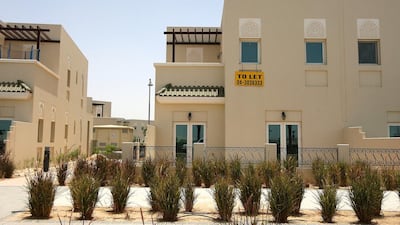A triple whammy of inflation data released on Tuesday revealed prices are rising at their fastest level since May 2009.
Dubai inflation jumped to 4.2 per cent last month, up from August’s figure of 3.5 per cent. Countrywide inflation rose to 2.9 per cent, while Abu Dhabi inflation hit 3.7 per cent.
Housing costs accounted for the majority of the price rises, while a small increase in food prices also contributed.
“The housing market is not a bubble – there are fundamentals at work,” said Alp Eke, senior economist at National Bank of Abu Dhabi. “Dubai’s population is increasing and per capita income is increasing, so you’re seeing both cost-push and demand-pull inflation.”
Some 43.7 per cent of household income is spent on housing in Dubai, according to data from NBAD, making it the single biggest item of individual expenditures.
Jason Tuvey, emerging markets economist at Capital Economics, said that “the strong performance of Dubai’s real estate sector last year, as well a removal of a cap on annual rent increases in Abu Dhabi, has pushed up housing costs.”
While housing costs has started to ease over the last quarter, that is not yet reflected in official data.
Rental and sales prices in Dubai fell in the three months to September, according to data from the real estate consultancy Asteco.
Data from NBAD and the real estate agency Cluttons also show a clear downwards trend in rental and sales price inflation.
Real estate analysts said that a cap on mortgages, and an increase in land transaction fees, have limited price increases in the sector. Mortgage caps have hit Dubai’s luxury housing market especially hard, the real estate firm Colliers said.
Analysts said that it could take between four to five months for official figures to reflect the recent slowing of the housing market.
“The lag can be explained by the sample size and membership,” Mr Eke said. “The UAE statistics agencies look at a mix of old and new rental contracts.”
Because the sample includes older rental contracts, it will take some time for price rises to be seen.
The number of older, cheaper contracts and newer, more expensive ones measured in the inflation sample is also not known, he said.
“In Abu Dhabi the inner city and peripheral areas – inner areas are remaining roughly the same, while the peripheral areas are going up,” Mr Eke said. “But we don’t know how many houses from the inner areas are included in the city, and how many are from outlying areas,”
Economists have raised their expectations of UAE inflation in line with recent figures.
Paul Gamble, the head of sovereign ratings at Fitch, the ratings agency, said that he expected Dubai inflation to hit 5 per cent within the next 12 months before falling in 2015.
Capital Economics expects UAE inflation will total 2.3 per cent this year, before hitting 3 per cent next year. NBAD expects inflation to average 2.4 in 2014, rising to between 2.8 and 3 per cent in 2015.
These estimates are in line with a poll of economists by Reuters, who expect inflation of 2.5 per cent this year, and 3 per cent in 2015.
But inflation is unlikely to rise significantly above this, Mr Eke said. “After the IMF warning of a possible bubble or boom-bust cycle, the UAE government took macro-economic measures.”
abouyamourn@thenational.ae
Follow The National's Business section on Twitter

